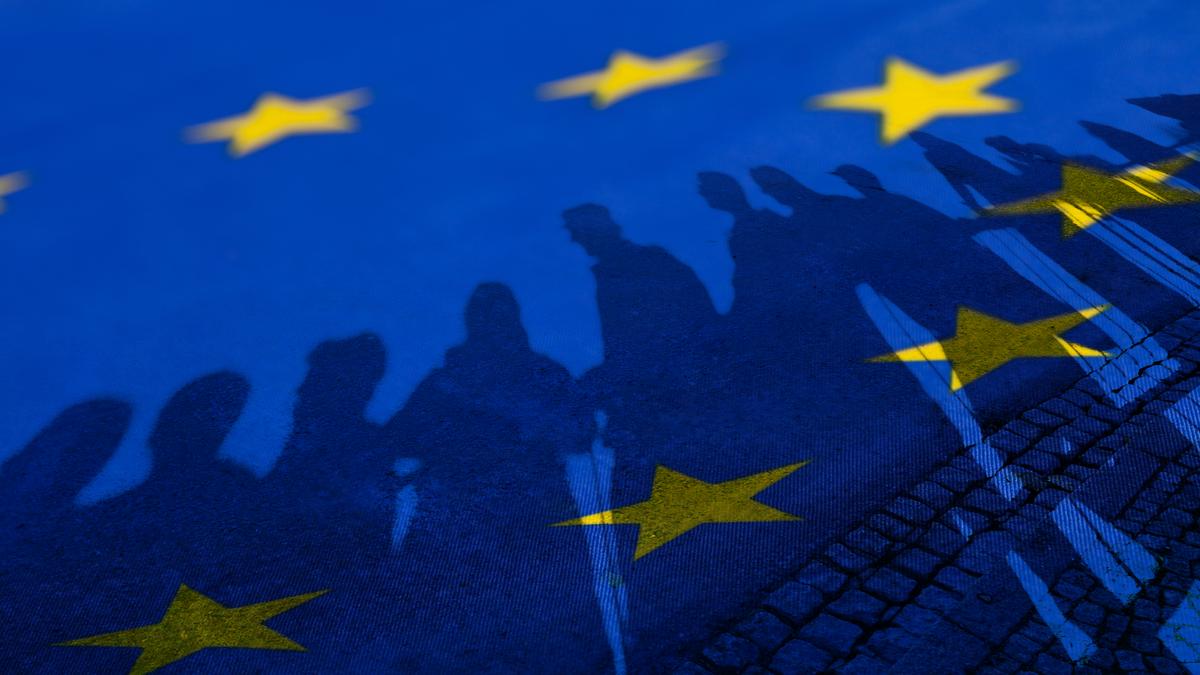‘The Europe-India relationship must be built on tangible connections, which include stronger people-to-people ties’
| Photo Credit: Getty Images/iStockphoto
The year 2024 was the super-election year around the world, and 2025 must be the year when the world’s democracies regroup and find new ways to support each other. Nowhere is this truer than in the relationship between Europe and India, a partnership that, for too long, has been big on strategies, but small on delivery.
For nearly 17 years, European Union (EU)-India relations were seen through the prism of on/off Free Trade Agreement negotiations. As a free trader, I believe that the benefits of the world’s biggest democracy and its largest trading bloc coming together to buck protectionist headwinds would be an economic and geopolitical game-changer.
Look at the bigger picture
However, we cannot be naive to the hurdles ahead. If a big-bang trade deal eludes us in the short term, we should develop another track away from the negotiators and bureaucrats. Fixed firmly at the highest political levels, it would focus on bigger picture geostrategic issues such as economic security, defence cooperation and a common agenda for space, emerging technology, and critical industry sectors such as pharmaceuticals.
On the geopolitical level, Europe was undoubtedly frustrated with India’s response to Russia’s invasion of Ukraine and continued close ties. These ties are historic. Conversely, India has broad rivalry with China, despite cooperation through the BRICS group and a substantial trading partnership. As a growing economy I can understand why India would not want to be sucked into power competition as the world divides into democratic and autocratic blocs. However, fundamentally, India is a democracy and its entanglement with Moscow and Beijing is unnatural. In the same vein, India’s accusations of double standards from Europe are not without substance. We cannot demand that India severs all ties with Russia without also addressing our own economic dependence on China.
A restart in relations should, therefore, start with a common assessment that Russia and China — with their ‘No Limits’ partnership — are both a threat to the global democratic world which includes India, Europe and the United States. What happens in the Atlantic affects the Indo-Pacific and vice versa.
On this basis we should focus on a series of practical measures to break down barriers to trade and investment piecemeal while strengthening our joint security, including economic security. This will include reducing dependencies on China in areas such as critical raw materials and developing new supply chains, with Europe seeing India as a ‘Trusted Partner’.
Defence and trade
In defence, India and the U.S. already enjoy strong defence cooperation, with India being America’s ‘Major Defence Partner’ and a member of the ‘Quad’ — sometimes referred to as the ‘Asia-Pacific NATO’. Europe should support the continued development of this security alliance to give India more security guarantees.
EU-India defence discussions have increased but should accelerate to a high political level as Europe looks to bring much-needed investment into our industries, which can also offer India better weapons than Russia. The EU’s new dedicated Defence Commissioner should visit India at the earliest opportunity and develop more collaboration, in defence and in space where both the EU and India have ambitious plans.
India and the EU have in place a Trade and Technology Council (TTC) to mirror a similar council with the Biden administration. Whether the EU-U.S. TTC survives President Donald Trump is unclear, but the EU-India Council has not reached its potential, especially in coordinating a technology agenda. Here, we can also draw inspiration from India’s ties with the U.S., where the U.S.-India initiative on Critical and Emerging Technology (iCET); iCET is promoting collaboration at the National Security Adviser level.
The Australian Strategic Policy Institute illustrates the scale of the challenge. It tracks the top 64 emerging technologies. In 57 of them, China is winning the global race. The U.S. is hot on its heels. However, India is also emerging as a key centre of global research innovation, with many other European countries also still in the running. Individually, we are doing okay in this existential race, but by combining forces, the free world can jump ahead to lead the world in all emerging technology, from quantum computing to advanced biotech. We must not hand victory to China.
In perspective
Europe and India should focus on a far more practical relationship built on tangible connections, including stronger people-to-people ties. For Europe, the benefits are obvious: India will become the world’s third largest economy in the next decade, at a time when European global GDP share continues to fall. But there is a wider prize: forming an alliance of democracies that has India at its core.
If Europe wants to anchor India in that alliance, we need to change our approach to the subcontinent. That does not mean brushing differences or difficulties under the table. India has many challenges to its democracy, but so does Europe. We should seek to address them together. Europe, India and the United States are individually powerful, but, together, we are unstoppable against the united autocrats.
Anders Fogh Rasmussen served as North Atlantic Treaty Organization (NATO) Secretary General from 2009-14 and was the Prime Minister of Denmark from 2001-09
Published – January 17, 2025 12:08 am IST

